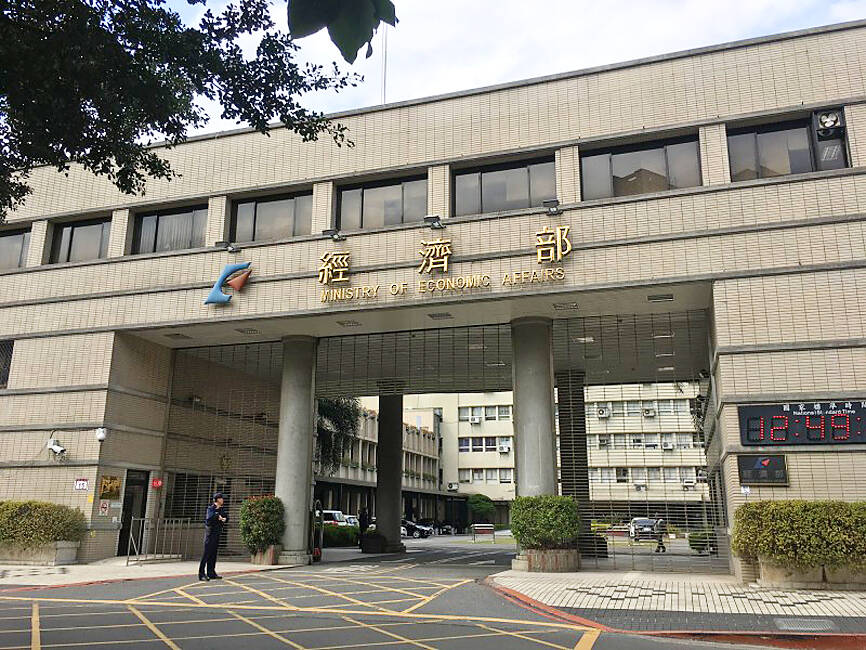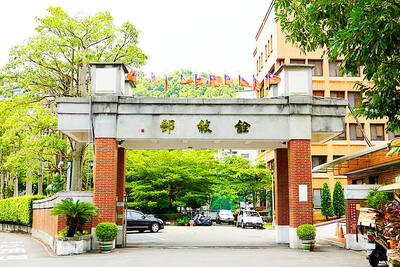China has launched an investigation into Taiwan’s trade barriers on more than 2,400 Chinese products, the Chinese Ministry of Commerce announced yesterday.
The rare move following a three-day drill China launched near Taiwan over the weekend adds to tension across the Taiwan Strait ahead of next year’s presidential election in the democratic nation.
The Chinese government’s probe would look at import restrictions that Taiwan has either already imposed or is considering imposing on 2,455 types of products from China, the ministry said in a statement on its Web site.

Photo: Taipei Times file photo
The investigation includes products from the agricultural, textile and mineral sectors after the ministry received complaints from three Chinese trade groups, the statement said.
It plans to conclude the investigation before Oct. 12, the ministry said, but added that the probe could be extended by three months to Jan. 12 next year under special circumstances.
It was not known when the results of the investigation would be unveiled.
Taiwan is to hold presidential and legislative elections on Jan. 13 next year.
In Taipei, the Bureau of Foreign Trade said in a separate statement that the Ministry of Economic Affairs was not informed about the investigation before it was announced.
Taiwan regulates Chinese imports based on the Regulations Governing Trade Between the Taiwan Area and the Mainland Area (台灣地區與大陸地區貿易許可辦法), which provides market access to Chinese goods if they are not deemed to endanger national security and have no major adverse effects on related local industries, the bureau said.
Taiwan has approved imports of 9,835 Chinese agricultural and industrial products since the regulations took effect in 1993, it said.
“The economic and trade interaction between the two sides of the Taiwan Strait is mutually beneficial and complementary,” it said. “It is a key link in the supply chain between regions and even the world, and is crucial to global stability and prosperity.”
“China should not complicate and instrumentalize trade issues to interfere with global economic development,” the bureau said.
“Considering that the economic conditions and structures of the two sides of the Taiwan Strait are different, Taiwan is willing to discuss trade issues with China without preconditions, if necessary,” it said.
The two sides could hold bilateral consultations, initiate multilateral dispute settlement mechanisms or take other measures to address the trade barrier issue, it added.

Taiwan Semiconductor Manufacturing Co (TSMC, 台積電) is expected to start construction of its 1.4-nanometer chip manufacturing facilities at the Central Taiwan Science Park (CTSP, 中部科學園區) as early as October, the Chinese-language Liberty Times (the Taipei Times’ sister newspaper) reported yesterday, citing the park administration. TSMC acquired land for the second phase of the park’s expansion in Taichung in June. Large cement, construction and facility engineering companies in central Taiwan have reportedly been receiving bids for TSMC-related projects, the report said. Supply-chain firms estimated that the business opportunities for engineering, equipment and materials supply, and back-end packaging and testing could reach as high as

CHAMPIONS: President Lai congratulated the players’ outstanding performance, cheering them for marking a new milestone in the nation’s baseball history Taiwan on Sunday won their first Little League Baseball World Series (LLBWS) title in 29 years, as Taipei’s Dong Yuan Elementary School defeated a team from Las Vegas 7-0 in the championship game in South Williamsport, Pennsylvania. It was Taiwan’s first championship in the annual tournament since 1996, ending a nearly three-decade drought. “It has been a very long time ... and we finally made it,” Taiwan manager Lai Min-nan (賴敏男) said after the game. Lai said he last managed a Dong Yuan team in at the South Williamsport in 2015, when they were eliminated after four games. “There is

Democratic nations should refrain from attending China’s upcoming large-scale military parade, which Beijing could use to sow discord among democracies, Mainland Affairs Council Deputy Minister Shen You-chung (沈有忠) said. China is scheduled to stage the parade on Wednesday next week to mark the 80th anniversary of Japan’s surrender in World War II. The event is expected to mobilize tens of thousands of participants and prominently showcase China’s military hardware. Speaking at a symposium in Taichung on Thursday, Shen said that Chinese Minister of Foreign Affairs Wang Yi (王毅) recently met with Indian Prime Minister Narendra Modi during a visit to New Delhi.

FINANCES: The KMT plan to halt pension cuts could bankrupt the pension fund years earlier, undermining intergenerational fairness, a Ministry of Civil Service report said The Chinese Nationalist Party (KMT) caucus’ proposal to amend the law to halt pension cuts for civil servants, teachers and military personnel could accelerate the depletion of the Public Service Pension Fund by four to five years, a Ministry of Civil Service report said. Legislative Speaker Han Kuo-yu (韓國瑜) on Aug. 14 said that the Act Governing Civil Servants’ Retirement, Discharge and Pensions (公務人員退休資遣撫卹法) should be amended, adding that changes could begin as soon as after Saturday’s recall and referendum. In a written report to the Legislative Yuan, the ministry said that the fund already faces a severe imbalance between revenue